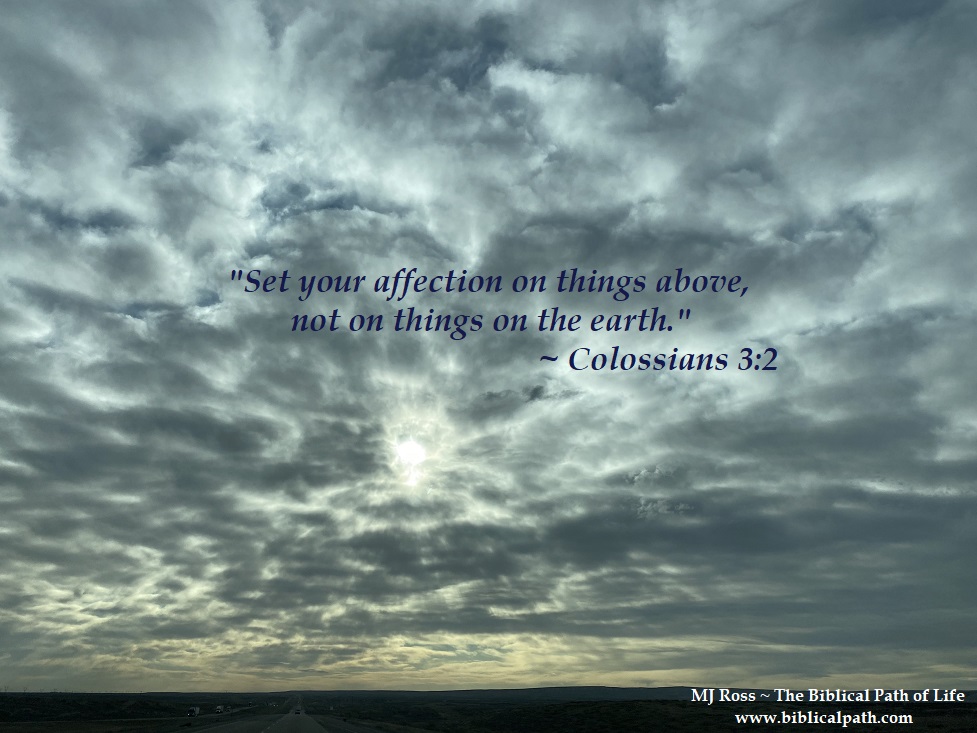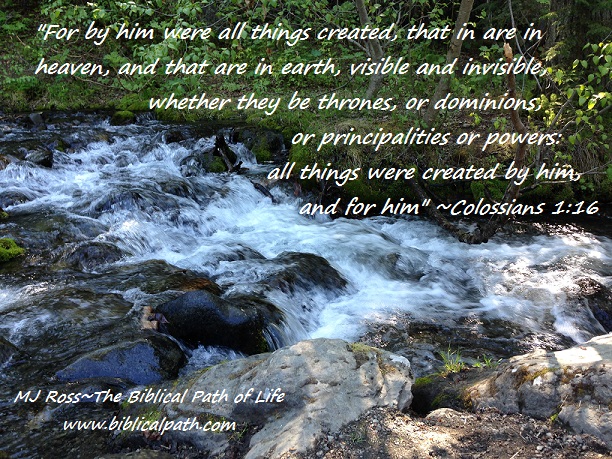
Key Verse
Set your affection on things above, not on things on the earth.
—Colossians 3:2
Key Verse Thought: Read today’s Key Verse. Use the following definitions to help you understand this verse a little better.
- Set your affection on means “the action as being accomplished – as in to have a mindset, be minded; involves the will, affections, and conscience. To think, or sense mentally; to be mindful of, or to be devoted to.”
- Earth means “earthly things or pertaining to this life.”
In this lesson, we will learn that Paul taught Christians how to keep Christ as the Head of the church, by keeping their head, their mind, on Christ.
Emphasis: Christians must learn the importance of keeping Christ as the Head of the church by keeping the heart and mind off of the things of the world, instead placing them upon heavenly things by putting on the new man.
Lesson Summary: In the letters of Paul we have studied so far, we have understood the teaching of doctrine (Romans), reproof for failure to live right (1 and 2 Corinthians), correction, rectifying wrong doctrine that had permeated the church (Galatians), Paul revealed deeper doctrinal truths intended for growing Christians (Ephesians), and last week Paul wrote to rectify a potential problem, reproof for wrong living (Philippians). In this lesson, we continue as Paul writes correction to rectify wrong doctrine in Colosse.
Paul wrote Ephesians to teach that Christ is the Head, and the church is the body of Christ (see Ephesians 1:22-23). He then wrote to the Philippians to come together with one mind when there were divisions in the body of Christ, the church (see Philippians 1:27). Paul also found it necessary to write to Colosse after he heard of error being taught in the church, causing them to forsake Jesus as the Head of the Church (see Colossians 2:19). Instead, false teachers were changing the simple Gospel of Jesus into a quest for philosophy after the ways of the world instead of the things of Christ. Christians are to set their affections on things above, not things on the earth (see Colossians 3:2). This book was written to fight against the error being taught.
In Colossians, Paul first encouraged them to walk worthy, reminding them of what Jesus had done for each and every Christian. This was foundational in being able to be grounded, not falling for false teaching. He then proceeded to correct the false doctrines that were being taught. The people of Colosse believed in worldly teaching, philosophies that were deceiving and misleading God’s people. Paul taught that Christians must “Set your affection on things above, not on things on the earth” (Colossians 3:2, this lesson’s Key Verse). He gave them a detailed list of things Christians must put to death and eliminate from their lives. After which Paul gave a list of things the Christian must put on in their new life in order to live a more Christ-like life. He then encouraged them to continue in prayer, enabling them to walk and talk as a Christian must in this world.
Y3Q3 – Lesson 10 Questions
Y3Q3 – Lesson 10 Children’s Worksheets
If you are teaching this to younger children, the following is a craft idea to help them remember this lesson:

We traced our footprints, cut them out, and glued them to a piece of construction paper. We added the verse from Colossians 1:10 to remind us the importance of walking worthy of the Lord, pleasing Him with all that we do, and learning more about Him.
The Biblical Path of Life – Year Three, Quarter Three is now available through Amazon.
